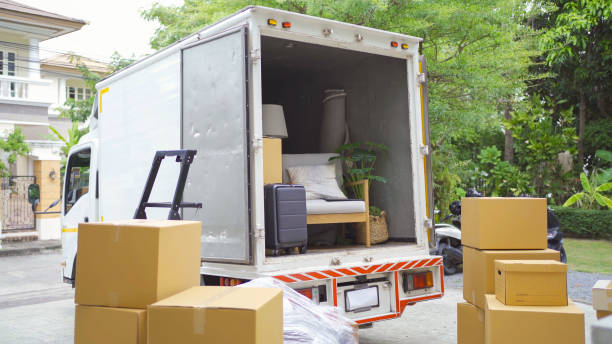
Moving into a new house is an exhilarating journey filled with the promise of fresh starts and new beginnings. However, it can also be overwhelming if you’re not adequately prepared. Whether you're purchasing your first home or relocating to a new rental, there are several crucial factors to consider before taking the plunge.
The search for the perfect home often brings a mix of excitement, anxiety, and anticipation. After sifting through listings and attending open houses, you finally find a place that feels just right. Yet, before you jump into unpacking and settling down, it’s essential to address several key aspects that can shape your living experience.
From familiarizing yourself with the neighborhood to organizing the logistics of your move, this blog post will guide you through the important elements to ensure a smooth transition into your new space. Here’s what you need to keep in mind before moving into your new house.
1. Research the Neighborhood
a. Safety and Security
One of the first things to consider is the safety of the neighborhood. Research crime rates and talk to local residents if possible. Websites like Neighborhood Scout and local police department pages can provide valuable insights.
b. Amenities and Services
Check for nearby amenities such as grocery stores, parks, schools, and hospitals. Knowing where these essential services are located can save you time and enhance your quality of life.
c. Commute Times
Consider the distance to your workplace or school. Test the route during peak hours to gauge how long your daily commute might take. Long commutes can add stress and eat into your personal time.
2. Inspect the Property Thoroughly
a. Structural Integrity
Before moving in, hire a professional inspector to check for any structural issues, such as foundation problems, leaks, or pest infestations. Identifying these issues early can save you significant headaches and expenses later on.
b. Utilities and Amenities
Ensure that all utilities are functioning correctly, including water, electricity, heating, and cooling systems. It’s also a good idea to check the internet and cable options available in your area.
c. Maintenance History
Ask the previous owner or landlord about the property's maintenance history. Knowing when major repairs or upgrades were last done can give you a clearer picture of what to expect in the future.
3. Understand Your Lease or Purchase Agreement
a. Key Terms and Conditions
Whether you’re renting or buying, understand the key terms of your agreement. For renters, pay attention to lease duration, pet policies, and maintenance responsibilities. For buyers, ensure you understand the mortgage terms and any homeowners association (HOA) rules.
b. Hidden Costs
Be aware of any hidden costs associated with your new home. This may include property taxes, HOA fees, or maintenance costs. Budgeting for these expenses will help you avoid financial surprises.

4. Plan Your Moving Logistics
a. Timeline
Create a detailed timeline for your move. This should include packing schedules, moving truck bookings, and utility setup dates. A well-organized timeline can reduce stress and ensure nothing is overlooked.
b. Hire Professional Movers vs. DIY
Decide whether to hire professional movers or to handle the move yourself. If you have a lot of heavy furniture or valuable items, professional help might be worth the investment. Conversely, a DIY move can save money but requires more effort.
c. Packing Strategy
Start packing well in advance, focusing on non-essential items first. Label boxes clearly to make unpacking easier. Consider creating an inventory list to keep track of your belongings during the move.
5. Prepare for the First Days
a. Essential Services
Before you move in, ensure that essential services like water, electricity, and internet are set up and ready to go. This will make your first days in the new house much more comfortable.
b. Cleaning
Consider doing a thorough cleaning of the house before you unpack. This includes carpets, floors, kitchen surfaces, and bathrooms. A clean slate will help you feel more at home.
c. Familiarize Yourself with the Space
Once you move in, take time to familiarize yourself with your new surroundings. Explore the layout, locate emergency exits, and test all appliances and systems.
Conclusion.
Moving into a new house is more than just a change of address; it’s a significant life transition that requires careful planning and consideration. By researching your neighborhood, inspecting the property, understanding your agreement, planning your logistics, and preparing for your first days, you can set the stage for a smooth and enjoyable moving experience. Embrace the journey, and soon enough, your new house will feel like home. Happy moving!
Related posts:
It usually starts as a simple question, the kind people ask casually but think about deeply. Do you buy a car to make life easier now, or land to secure something bigger for the future? Both feel important. Both cost...
At some point in the home-buying journey, almost everyone faces the same quiet dilemma. Do you choose the order and structure of an estate, or the freedom and independence of a standalone house On the surface, the decision looks simple....


 Land or Car: Which One Should You Buy First?
Land or Car: Which One Should You Buy First?
 Living In An Estate vs Standalone Houses: Which One Is Actually Better?
Living In An Estate vs Standalone Houses: Which One Is Actually Better?
 Why Many People Start Building and Never Finish
Why Many People Start Building and Never Finish
 Should You Buy a Home or Build One? A Complete Guide to Making the Right Decision
Should You Buy a Home or Build One? A Complete Guide to Making the Right Decision
 The Best Places to Live in Lagos
The Best Places to Live in Lagos